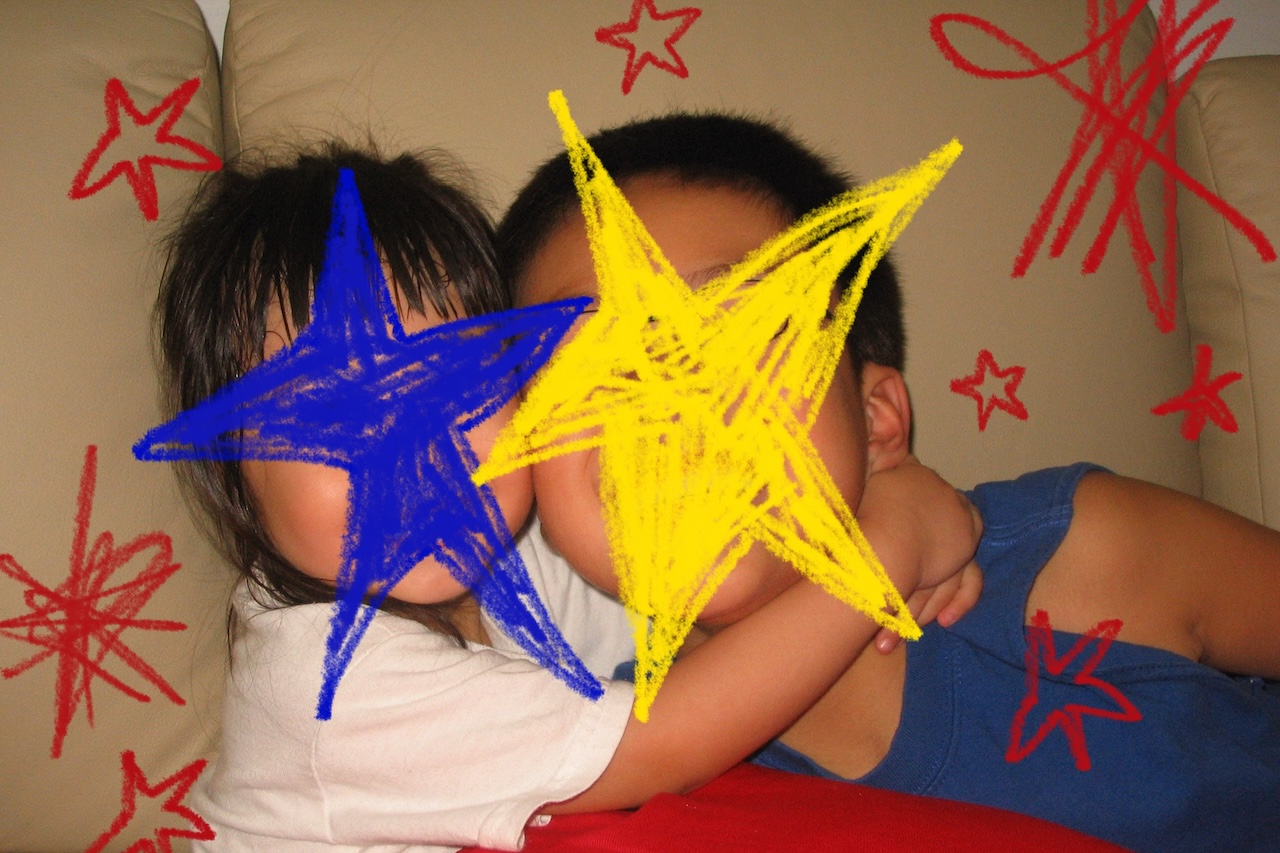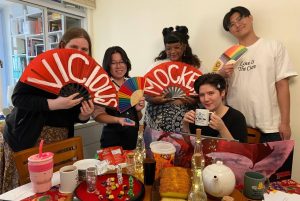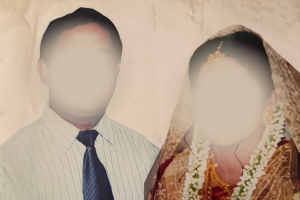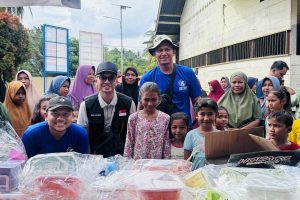All images courtesy of author.
Hi Koko,
When I read your Christmas letter in 2023, the one where you told me I was the first person you learnt to love, I cried for ages alone in my room. You’ve always shown love through quiet acts of service, so seeing it in words from you was a relief. I’ve always found comfort in the tangible.
In true Asian family fashion, we never addressed it again.
Honestly, I never thought I’d say this to you—I was ready to take it to my grave. But after six years of hiding, I want to give you the chance to know the version of me I’ve been too scared to show. I’m learning to love fully, and I want to stop hiding. I hope you’ll be able to love me for who I really am.
First of all, thank you for your quiet strength in holding the family together. You know how turbulent things have been (and still are).
Do you remember when I was in primary school and I couldn’t name the anxiety I felt—how it manifested in angry fits and screams? How Mum and Dad responded with attempted exorcisms, performed on me as an eight-year-old child?
I lost trust in them early, and you became the messenger between us. After every major argument, you’d come in to check on me, passing along whatever they wanted to say. It must’ve been exhausting, being the constant peacemaker.
I’ve always felt guilty for putting you in that position. You’ve been my lifebuoy, but I often felt like a burden you never asked for.
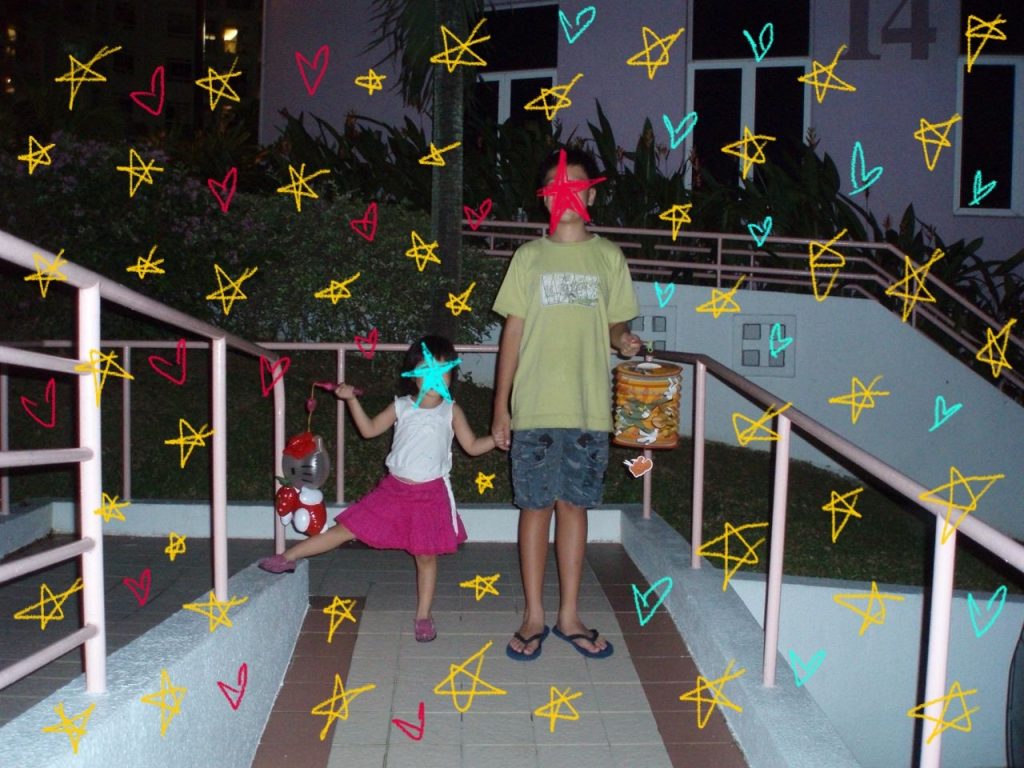
Love in the Little Things
You’ve done more for me than I could ever repay—expressing love in small, quiet ways. Driving me around, dropping off food at school, helping with assignments, taking me out for meals (that I most definitely didn’t pay for).
And in the bigger moments, too. Like when you took me to my first psychiatrist appointment.
I was 17. Seeking help for my self-destructive tendencies was a huge step, and I didn’t know who else to turn to. So I did what I always do when I’m lost—I came to you. Quietly, meekly. Before I broke down.
You didn’t react much. You just asked what I wanted to do, then cleared your schedule and took me there.
When I was diagnosed with Persistent Depressive Disorder, you didn’t make a fuss. You simply gave me advice about my prescribed medication. I was adamant about not telling Mum and Dad, and you kept my secret.
Over the years, you kept checking in. Taking me out to eat after I had a rough week. Sending “jiayous for the week” texts every time you dropped me off at my dorm. Taking me out on hikes and kayaking trips.
So when I got into a turbulent relationship at 19 that pushed me to my limits, it was only natural to want to turn to you.
But I held back, because the person I loved was a girl.
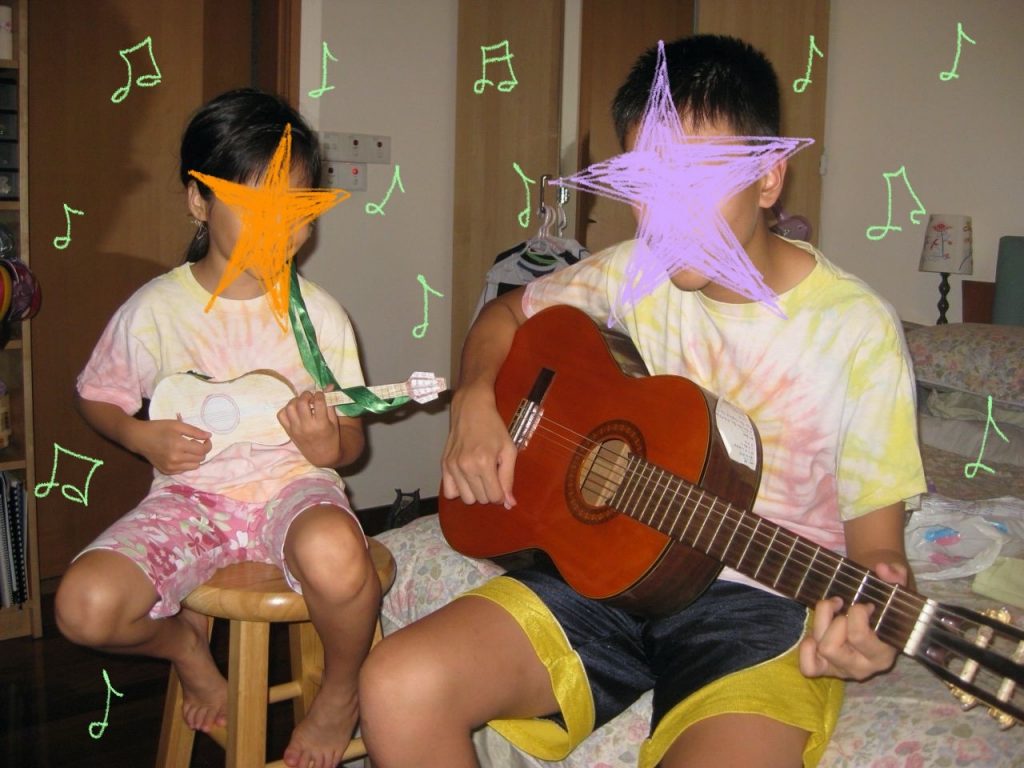
When Love Feels Conditional
For the first time, I couldn’t just say what was on my mind. I felt there were only two choices: live a lie forever, or risk rejection.
Our parents throw around comments about how “homosexuality is a sin” or that repealing 377A is a sign “the world is losing its morality.”
Mum likes to ask me whether my relationships with my friends are “abnormal”—she can’t even bring herself to say the words. Any questioning of my sexuality is a plea for reassurance, for her to hear me utter “No, I’m not gay”.
“Okay, good, you know that it’s wrong, right?”
Every day, I step through the front door and leave a part of myself behind. I avoid speaking to Mum and Dad. I take off my shoes before entering, hoping to slip past the living room unnoticed. I hide cards, gifts, and photos from past partners in obscure corners. When I’m out with my partner, even the smallest gesture of affection makes me scan the crowd, afraid of being recognised.
Everything I do is policed. The music I listen to, the shows I watch, the people around me, and the way I dress. If I’m too feminine, it’s about modesty and purity. If I’m more masculine, it’s accusations: You’re gay. Someone made you dress like this. Be more feminine.
It’s tiring to keep shrinking, constantly rearranging myself into something more ‘acceptable’.
Whenever they do ask outright if I have gay friends, I say no. When 377A was repealed and my group chats exploded with joy, I had to pretend that I felt it was a wrong move.
It feels fundamentally wrong to go against my own values, having to silence myself to maintain peace. My voice is censored; my self-presentation is curated. I’m existing in fragments.
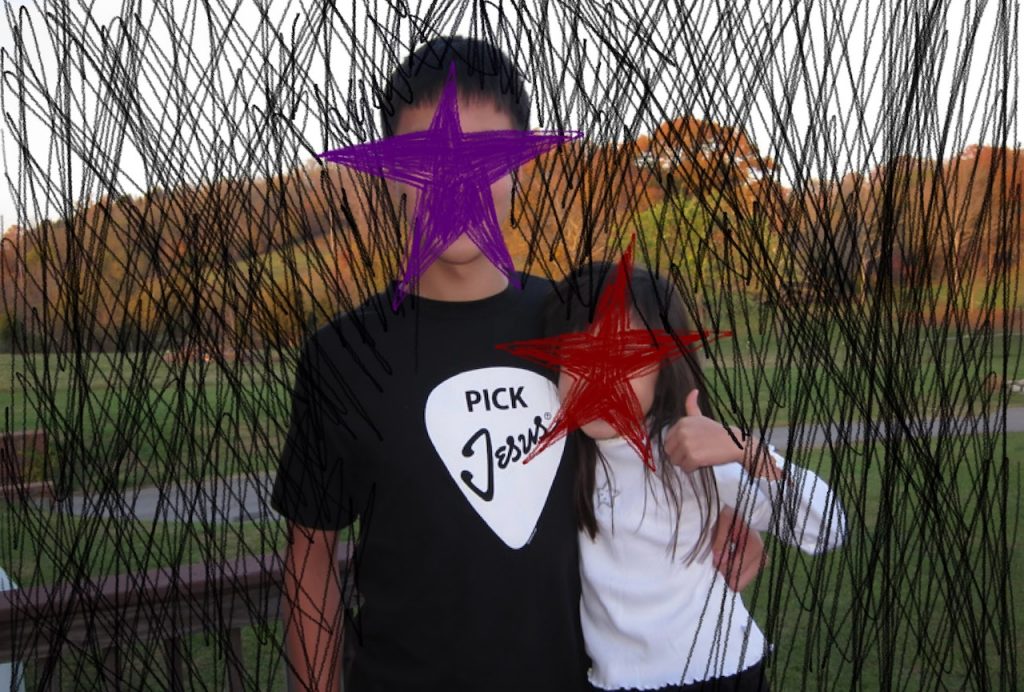
Once, I tested the waters with you. I asked what you’d do if your future child came out as queer. You said “it’s wrong,” but you’d see if the time came.
I don’t blame you; I know it comes from how you were raised. And yes, the church taught me the same beliefs. I had to unlearn them for the sake of my own sanity. Only after stepping back from religion could I grow into myself.
But the more I knew myself, the less you knew me.
Our parents are more openly confrontational and expressive than most. You and I? We hold back. I don’t know your reasons, but for me, it’s simple: everything I say gets met with scrutiny. So I stopped talking, stopped sharing to protect what little I could.
They say “You know we love you, right?” a lot. And I don’t doubt it. But sometimes I wonder—can love and acceptance be the same thing?
“Love is patient, love is kind. It does not envy, it does not boast, it is not proud. It does not dishonour others, it is not self-seeking, it is not easily angered, it keeps no record of wrongs. Love does not delight in evil but rejoices with the truth. It always protects, always trusts, always hopes, always perseveres.”
1 Corinthians 13:4–7
If this is the love that I receive in a romantic relationship with a woman, does it anger you?
Maybe I’ve adjusted my definition of love. If I hadn’t, I’d have to admit that not being fully accepted means not being fully loved.
Even if Mum and Dad never come around, I’m still holding out hope for you. That you’ll love me not for who you want me to be, but for who I truly am.
What I Wish You’d Know
I’ve always introduced my partners as “friends,” but deep down, I think you’ve always known. There were times you treated them with grace, and I’ve wondered—would you still, if you knew the truth?
You never say much, so I don’t know.
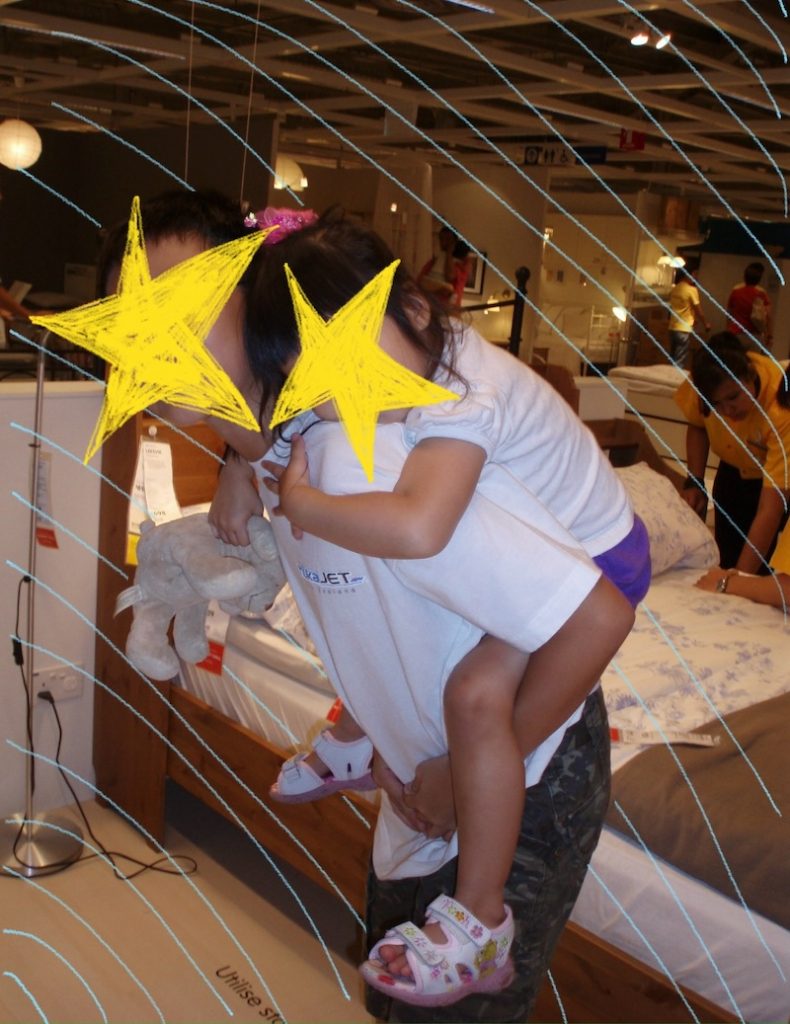
I met up with Jamie recently, and she was sharing how badly her mum wants to meet her girlfriend. She and her brother are both queer, loved, and accepted by their mum.
I’m happy for her, truly. But there’s always a tinge of jealousy that flickers whenever I hear about her accepting family.
I’ve come to terms with possibly losing Mum and Dad if they ever found out. But losing you… that might break me.
What I want you to know is this: I’m still me, the same sister you’ve always known and loved. Yes, queerness is a huge part of my identity—but there’s so much more that makes up who I am. I’m still family.
Tomorrow, I’ll tell you I’m out on a shoot. But I’m actually going to Pink Dot with Jamie and Chai, and I’ll celebrate the love and acceptance I’ve found in my chosen family.
I haven’t mustered up the courage to come out to you in person. But if you’re reading this, I hope you’ll still love me as I am. My biggest wish is to see you at my wedding one day, with as much love for my partner as you have for me.
Until then, I’ll keep hoping.
— Love, ni zui hao de mei mei
你最好的妹妹

